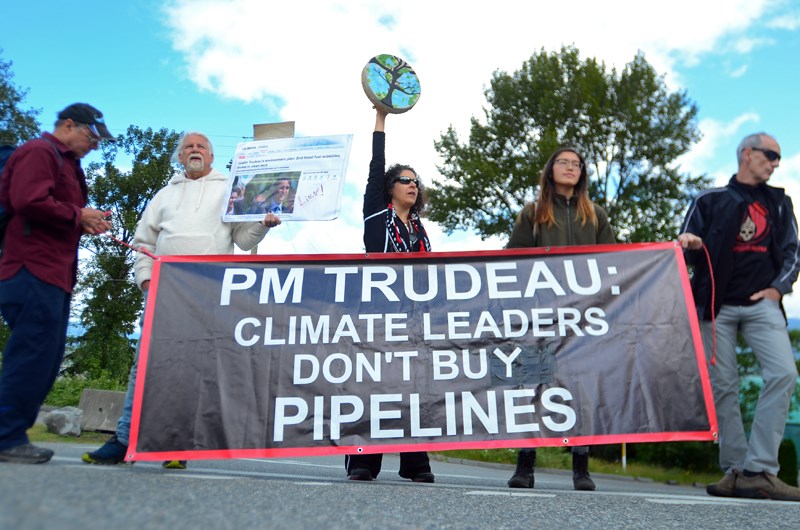Trainer and her friends live in Vancouver’s West End and play beach volleyball at Sunset Beach on summer nights. But with a pipeline in the works to ship Alberta oil to Asia, the friends see the project as a threat to their seaside lifestyle and the local ecology.
Trainer and her friends are fictional - the main characters of Robyn Allan’s upcoming book When They Came for the Beach - but if the pipeline project sounds familiar, that’s no coincidence.
“I make no bones about it in the book that it’s Kinder Morgan and the Trans Mountain expansion,” Allan said.
“It’s about what happens to this group of 20-somethings who discover their future is fundamentally going to be impacted.”
Allan is a former senior economist for the B.C. Central Credit Union and has written extensively on Trans Mountain, which terminates in North Burnaby.
But with the novel, she hopes to bring the issue to people who may not read the news frequently.
“I discovered it doesn’t matter how many op-eds I wrote or how many research reports that I did. The issues weren’t percolating as they need to for the proper responses,” she said.
“I felt the best way to attack the fiction that we’re being presented with [by proponents] was with fiction.”
Backing her counterclaims against the “false narrative,” which Allan says plays up economic benefits and diminishes environmental risks, will be a bibliography with citations in the novel.
In particular, she notes that the economics behind the renewed approval of the pipeline from the Liberal government was based on a 2013 analysis, when Alberta oil could reach upwards of $80 per barrel, compared to the $40 to $50 a barrel it goes for today.
Proponents of the project say the discount on Alberta oil can be alleviated by diversifying Canada’s customer base from the main buyer, the U.S., and include importers like China.
“That’s a falsehood that the characters discover is that that argument, the widening differential, is without merit,” Allan said.

“Heavy oil is a substandard product, so its price is under pressure and there’s no real investment going on in the tar sands to expand it.”
She also takes aim at the potential environmental impacts of the pipeline, from the threat of greenhouse gas emissions to the potential for an oil spill.
“What if the oil spills and our beach is ruined? As [the characters of the book] start to dig, they start to find one falsehood after another that really shows them how corroded our institutions are that are supposed to be there to protect us,” Allan said.
The book is the product of four years of work, which Allan said began as an urge to document the issue as it progressed. Ultimately, it became a novel, Allan’s first foray into creative fiction after years of writing opinion pieces and other research articles.
“I found it incredibly fulfilling,” she said. “For me, it was a way to allow the characters to experience the process that I’ve gone through in the last eight years … I think that, in a large way for me, this has been a relatively healthy way for me to deal with my outrage.”
Allan’s book is timed to come out on June 14, ahead of the federal government’s decision following consultations with First Nations along the pipeline route.
The novel will be available for purchase at novel.robynallan.com



